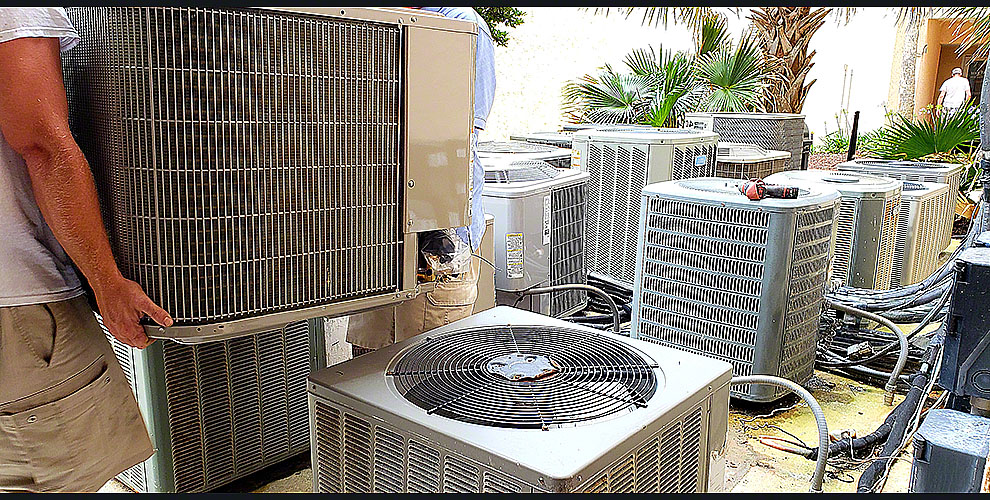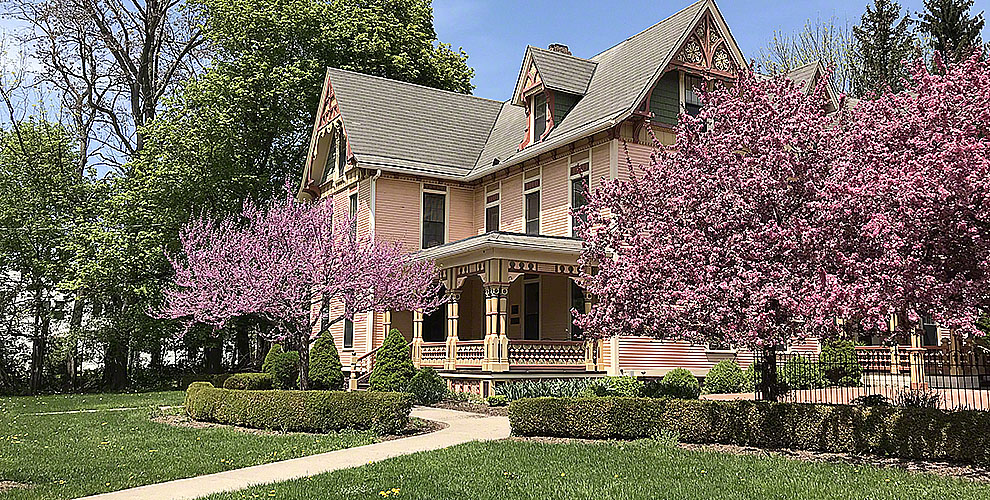If your HVAC system is showing problems, you should check these components because they are most prone to failure. You will need the expertise of an HVAC repair service to replace the component once you determine the cause of your air conditioner issues.
Air Filters
The parts of the HVAC system that you will change the most are the air filters. They block contaminants like dust, dirt, lint, mold, pet hair, and others from entering your HVAC system. As they filter the air flowing into the AC unit, air filters can get clogged over time and you have to either clean or replace them.
You should replace your air filters every 2-3 months. If you have a pet in your house, change the air filters every 2 months. Furthermore, if you have multiple pets or someone with allergies, air filter replacement should be done every 20-30 days.
Air filters come with a Minimum Efficiency Reporting Value or MERV rating that determines the effectiveness of the air filters in blocking contamination particles. Air filters with higher MERV ratings can filter out even smaller particles as well whereas air filters that have a lower MERV rating can only block larger particles allowing smaller particles.
Air filters with a MERV rating of 16 or below are suitable for residential, commercial, and general hospital use. They can block most contaminants and don’t filter out too small contaminants. On the other hand, air filters that have a MERV rating of 17 to 20 are used in operation theaters and similar places where absolute clean air is required.
Choosing the air filters with the highest MERV rating is not suitable because you have to install air filters that are recommended by your manufacturer. If your manufacturer recommends a MERV rating of 13-16 and you install a 17 MERV rating air filter, it can reduce the efficiency of your HVAC system and also reduce the airflow.
Therefore, when replacing your air filters, check the recommendations of the manufacturer by referring to the user manual. You can also take out the old air filter, take a picture of it, and show it to the salesman to purchase the same air filter you were using.
Air filters are of various types but you can divide them into two main types: washable and disposable. Washable air filters are reusable while disposable air filters should be replaced when become dirty.
Capacitors
Capacitors in air conditioning systems store electricity and provide the initial electricity required for the AC’s motor to run. When the motor starts up, it reduces its output and keeps a steady current flowing to the motor till the motor turns off at the end of a cycle.
An AC capacitor can last for 10 years but you should have it inspected during every annual HVAC maintenance done by an expert.
As capacitors are used, their ability to store energy weakens like batteries and they wear out. Therefore, you should look for these signs if you think that your AC capacitor is faulty.
- The AC doesn’t blow cool air. You should turn off the AC and turn it on again. If it doesn’t blow cool air, check the capacitor.
- AC turns off suddenly. A capacitor allows the initial current and then steady current to the motor for function. If the capacitor is faulty, the AC will begin to turn off abruptly.
- The air conditioner won’t turn on.
- A steady increase in energy bills.
- A humming noise comes from the AC
Capacitors hold a charge even when the power to the air conditioner is off. So, let an AC repair service replace the capacitor of your AC. If you want to do it yourself, drain the charge before removing it.
Blower Motor And Condenser Motor
Air conditioners have two fan motors that have two different functions. A blower motor is located in the air handling unit of the HVAC system. The blower fan motor blows air over the evaporator coil for throwing cool air into the ducts and your home.
The second fan motor is the condenser motor. It’s located inside the condenser unit of your air conditioning system. A condenser motor keeps the condenser coils cool when you set your unit to cooling. This is required because, during cooling, the warm refrigerant flows into the condenser coils taking out heat from the house. So, the warm refrigerant heats up the condenser coils and the fan allow the dissipation of this heat.
Both these motors can work for 10-15 years. During this period, they may require oiling if the fan blades don’t move properly. You should also keep them clean for preventing anything from obstructing the fan blades. However, if the motor is old enough, you will have to replace it.
If your AC fan doesn’t spin even when the AC is on, it doesn’t turn off even when the AC is turned off, or the fan turns on but the blades move slowly, the reason could be a faulty condenser fan motor. Another sign of a bad fan motor is a rattling noise coming from the AC.
Upon spotting these signs, you should check if the capacitor is faulty or the motor. To check this, you can remove the panel of the condenser unit and notice the top of the capacitor. If it’s flat, the capacitor is fine and you should inspect the fan motor, but if the top of the capacitor is swollen, the capacitor is faulty.
Evaporator Coils
Evaporator coils are present in the air handler unit of an HVAC system. They last for 10 years and you may need to replace them once or twice in the entire lifespan of your HVAC system. However, if multiple components of your HVAC system fail after 10 years like evaporator coils and compressor, then you’re better off replacing the HVAC unit.
Over time, corrosion can cause tiny holes in the evaporator coils that lead to the leak of the refrigerant. This causes many problems like your air conditioner stopping cooling and your energy bills rising. Moreover, tiny holes in the evaporator coils cause low refrigerant levels as well. If your AC is not cooling, have the evaporator coils and the refrigerant levels checked.
Thermostat
A thermostat regulates the temperature of your house and triggers your HVAC system to cycle on or off when required. Usually, thermostats last for 10 years, but many homeowners replace them earlier than this period because of technological upgrades. Even if your thermostat is fine, you may want to replace it if it’s a non-programmable thermostat because other types of thermostats like programmable and learning thermostats have better features and can save you energy costs.
That being said, if you detect these signs, your thermostat is malfunctioning and you should replace it:
- Your AC keeps cooling and doesn’t turn off.
- Your AC turns off sooner than expected.
- Air conditioner cycles on and off unexpectedly.
- Your HVAC system doesn’t reach the set temperature.
- The thermostat doesn’t respond to changed settings.
- High energy bills.
- The thermostat is older than 10 years.
Conclusion
Usually, air conditioning systems last for 15 years, but some components fail sooner than 15 years and you have to replace them by hiring air conditioning companies. However, if your AC’s compressor fails after 10 years, consider replacing the entire HVAC system. AirOne


